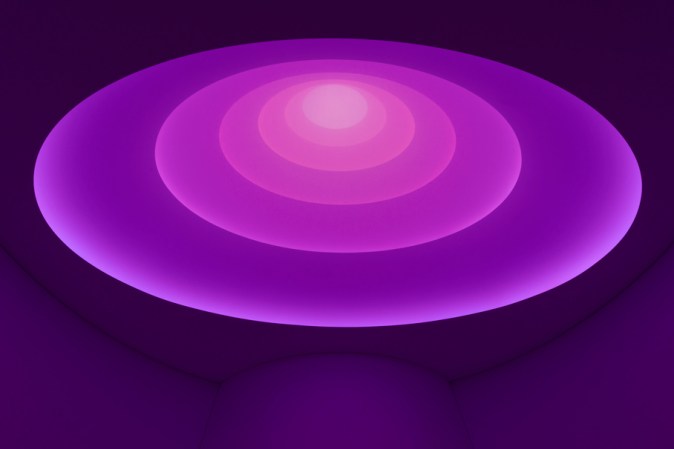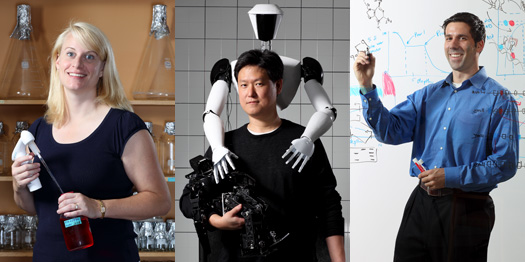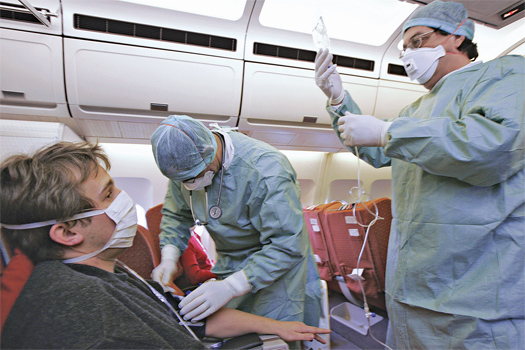

Being a know-it-all is usually a bad thing—unless, that is, you really know your sh*t. In the case of Peter J. Bentley, PhD, and the author of The Science of Why Sh*it Happens, nothing could be more true. His new book dives into the science behind ordinary occurrences, focusing in particular on the everyday mishaps— from slipping in the shower to breaking a bone. Beyond writing books, Bentley, a computer scientists and Honorary Senior Research Fellow at the University College of London, spends most of his time studying the capabilities of fault-tolerant snake robots, computer networks with artificial immune systems, growing neural networks in electronics, and being an overall brainiac. PopSci.com caught up with him to see how he knows so much about, well, everything.
PopSci.com: Is there a solid scientific reason for why bad things tend to happen all at once? Why is it that, as the saying goes, “when it rains, it pours?”
Peter J. Bentley: Yes, and it’s our fault, I’m afraid! The statistics show that people who believe in bad luck will have more accidents on Friday the 13th. Those who have a negative attitude are more likely to endow normal little mishaps with some mystical significance. Some psychologists even suggest that it’s a way of subconsciously avoiding responsibility for our actions. “It was Friday 13th, so I was bound to stick my fingers with superglue” or “Accidents happen in threes, so after the first mishap the next two were inevitable.” Of course it’s nonsense. What I try and do in the book is turn the negative into something positive. Don’t get upset, get interested and learn!
PopSci.com What do you think is the strangest fact you included in the book?
Peter J. Bentley: Countries going to war over bird poop is surprising. Interference from a radio station causing car ABS (anti-lock braking systems) to fail is scary. The accidental discovery of superglue (discovered by sticking optical equipment together by mistake) is funny. And the weird fact that (until quite recently) it was believed that newborn babies felt no pain—bizarre!
PopSci.com Why did you choose to write about the stuff that happens during a bad day, and not during a good day? After all, it’s the same stuff, right?
Peter J. Bentley: The days that most of us remember are the ones when something annoying or frustrating happened. We’ll remember the time we drove off in the car with our bag on the roof, but forget the hundreds of times we drove off with the bag in the car. We’ll remember the time our mp3 player went through the washing machine, but forget all the other occasions we used it to play music. So a sh*t day is immediately relevant and memorable to everyone. It’s also a useful way of explaining how things work. Usually when something fails it can be far more revealing about its internal workings. Think of a mishap as like an informal experiment. Just by looking at a CD, using a microwave, or washing with soap you might never guess how they work, but scratch it, or place metal inside it, or slip on it and suddenly you have a much better idea.
PopSci.com What gave you the idea to write this book?
Peter J. Bentley: I love science. My aim is to show just how important and relevant science is today. Look at the news: right now we’re seeing that money can be transitory; politics can be misguided. The one thing that never changes is the simple equation: knowledge is power. Knowledge gives us the ability to make intelligent decisions about big and small things in our lives. And through centuries of development, science gives us the best way of obtaining that knowledge. So the book is about personal discovery and empowerment – I want to reawaken that child-like curiosity in readers and encourage them to understand and marvel at their worlds. Sometimes it’s hard to bring the ordinary reader inside a research lab, so in this book I bring the science into our everyday lives, relating it to products, technologies and biology that we all know.
PopSci.com So, how do you know so much about everything?
Peter J. Bentley: I grew up in the days of “home computers”—the ZX81, ZX Spectrum, Amiga and so on. My father was a mechanical engineer. This environment coupled with a slightly geeky personality meant I was building robots, electronic circuits and writing software by the time I was 9 years old. I quickly learned that there must be something very special about living organisms, because making good robots is difficult. So my interests broadened into the biological sciences and beyond. By the time I achieved my PhD it was clear that computers were being used in all the sciences. A computer scientist with a broad range of interests can work with just about any other scientist out there (and also with artists too). So although most of my research is centered around “biological technology,” over the years I’ve collaborated with geneticists, evolutionary biologists, ecologists, developmental biologists, cell biologists, immunobiologists, materials scientists, physicists, chemists, artists, musicians, architects…and so on. I can’t claim to be an expert in all these areas, but I do know how to find out the answers if I don’t know them.
PopSci.com While researching the book, did you find anything that science just can’t explain?
Peter J. Bentley: Nothing that science cannot explain given time… but certainly a few things that so far have not been fully explained. We still don’t really understand charge separation in electrical storms. And our brains are so complex that we don’t understand dreams or memory very well.
PopSci.com And what would you say were your most surprising discoveries?
Peter J. Bentley: Some of the most fundamental aspects of science are the most surprising. How we grow self-repairing stones in our mouths (teeth); how electrons can sweep atoms along like pebbles in a stream and cause silicon chips to fail; why spicy food feels hot when its temperature is not; how friction can transform tissue paper into rope; how slow nerve signals really travel in the body. I find that the more you find out, the more you realize how much you don’t know. There is still an almost unlimited amount of things to investigate and wonder at.













